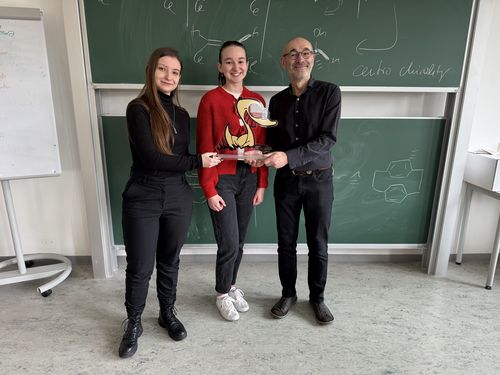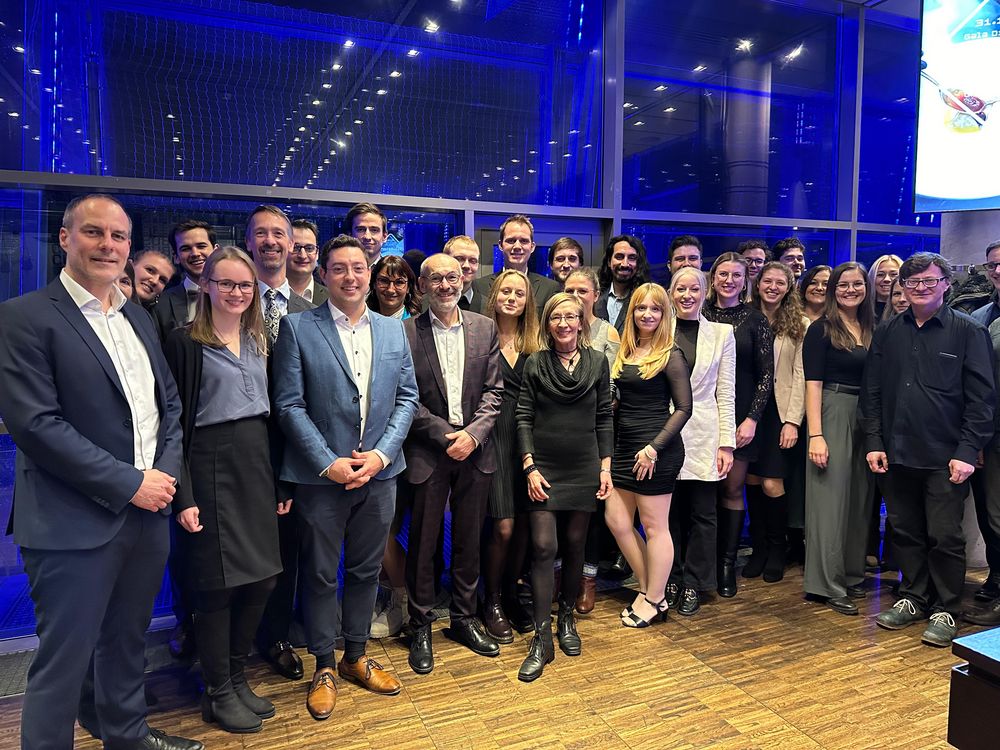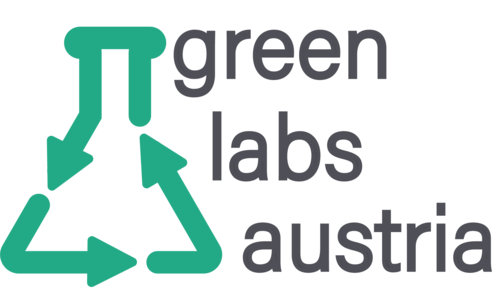Current research in the CTO group at the Johannes Kepler University Linz focuses on a wide range of organic synthesis of industrial relevance. Especially complex macromolecular architectures with selected functionality and composition via radical and coordination polymerization protocols are of interest. Other points of interest are additive chemistry, renewable resources and process safety. Our research interests are mainly at the interface of organic and polymer chemistry, with particular focus on industrial applications.
By clicking on the link buttons you can get an insight into the everyday chemistry at the JKU.
Institute for Chemical Technology of Organic Materials
Adress
Johannes Kepler Universität Linz
Altenbergerstrasse 69
4040 Linz
Location
TNF-Tower, Office Room T 510
Opening hours office
Mo-Tu: 08 am - 02:30 pm
Th: 08 am - 02:30 pm
Phone number
+43 732 2468 9000
cto-office@jku.at
This website can help you to know more about us: who we are, what we do and how we do it, what our equipment and infrastructures are, with who we collaborate, how you can link with us.
Thank you for your time and interest. Enjoy your virtual visit!
For studies affairs and general information please contact: cto-office@jku.at
If you are looking for a master, PhD or bachelor thesis, don´t hesitate to contact us. At the moment we are looking for master students to support our cooperations with companies such as: Borealis, Miba and Krajete.
For details on topics for bachelor, master or PhD thesis, please contact:
Univ.-Prof. DI Dr. Christian Paulik, opens in new window, Associate Prof. DI Dr. Clemens Schwarzinger, opens in new window or DI Dr. Klaus Bretterbauer, opens in new window.
And the winner is...
Christian Paulik is delighted to have won the gold award in this year's “Vote your Prof” survey for student-friendly teaching! The challenge cup has been given a place of honor at the institute.

H.F. Mark Sustainability Award
Klaus Bretterbauer and his team were awarded the H.F. Mark Sustainability Award for their research on recyclable, fluorine-free polymers for high-energy lithium-ion batteries. Their work focuses on developing sustainable materials that are toxin-free and based on renewable resources like castor oil. This promotes more environmentally friendly production and energy-efficient recycling of key materials like lithium and nickel, which is especially important for the energy transition and climate protection.
"Linzer Forscher schufen giftfreie Akkus"
We are excited to present new battery materials, designed to revolutionize processing solutions and sustainability. The findings were recently published as a research article in Advanced Energy Materials (https://doi.org/10.1002/aenm.202401074). The innovative materials have also been featured in regional and national newspapers, highlighting their potential to revolutionize energy storage solutions.
We present fluorine and PFAS-free functional binder materials for high-energy lithium-ion batteries featuring improved properties, water-based processing, and superior recycling capabilities. In a proof-of-concept prototype, the new binders retained 85-88% of capacity after 100 cycles and maintained a high Faraday efficiency of close to 100%. Its water solubility allows for an energy-saving and environmentally friendly recycling process, whereby elements with limited availability such as lithium, manganese, nickel, cobalt as well as the aluminum foil of the current collector can be recovered more easily. Furthermore, due to the developed polymers' pH-dependent water-solubility, recovery of the binder material itself becomes feasible.
"Die Produktion von Plastik soll europaweit klimaneutral werden"
Prof. Paulik was interviewed in an article in the Standard Newspaper about his views and insights as a plastic production and recycling expert on the climate-neutral plastic production in Europe. “The project is ambitious, but feasible” stated Prof. Paulik. “Technologically, there is still a lot of room for improvement. But all stakeholders have a role to play, and cooperation is needed at many levels.”

Green Labs Austria
Global warming represents one of the biggest threats to the well-being of mankind. Paradoxically, while scientific research is instrumental for solving the imminent climate crisis, our activities contribute significantly to anthropogenic climate change.
Green Labs Austria aims to connect laboratories in Austria that share the vision of a more sustainable research. We want to change the status quo of resource management and offer guidelines for a transition to more environmentally aware research practices. We hope to achieve this by collaborating with groups and institutions from various disciplines.
Specifically, we want to reform how labs and scientists think about energy consumption, plastic consumption, recycling and traveling

 Go to JKU Homepage
Go to JKU Homepage








